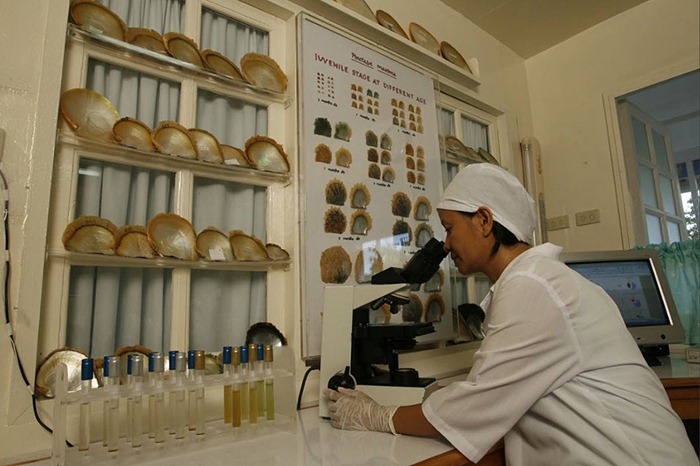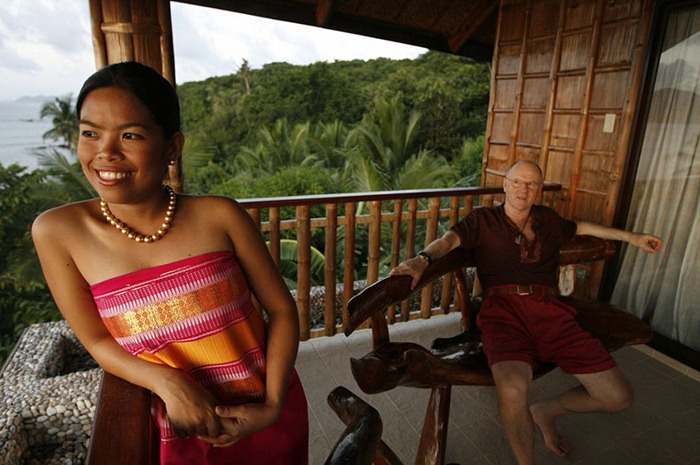
Spoiler :

Jacques Branellec showing pearls from a new harvest.

The archipelago of Palawan

A Pearl farm.

A board showing the placing and the state of the oyster lines on one of the Palawan farms.

A biologist examining a gold pearl under a microscope.

Three species of Oysters: (left to right) white, gold, black.

Young oysters are carefully cleaned of dirt and parasites before placing them into new cells.

Young oysters are transported by helicopter to a neighboring farm for further growth.

A worker holding a cage where oysters will spend the next 2 to 3 years.


Guards overseeing a farm ship.

Oyster cages are suspended by ropes at a depth of 15 meters.




Workers pull up cages of ripe pearls.



Oysters are thoroughly washed before they are opened.

Jacques Branellec oversees the process of harvesting pearls on one of his farms.
 .
.
Pearls are carefully removed from the oysters. Only a few experts have the ability to open these oysters without damaging the pearls.



The oysters shells, in turn, are cleaned and sold to restaurants in Manila.

During one week of harvest thousands of pearls are collected. Each sells for 500 Euros. But the pearls of the highest class can cost several times more.

In the workshops pearls sort out and evaluated.


Designer develop new jewelry of pearls.

Gold jewelry pearl.


sumber :http://www.amusingplanet.com/2010/09/golden-pearl-farming-in-philippines.html
Tidak ada komentar:
Posting Komentar